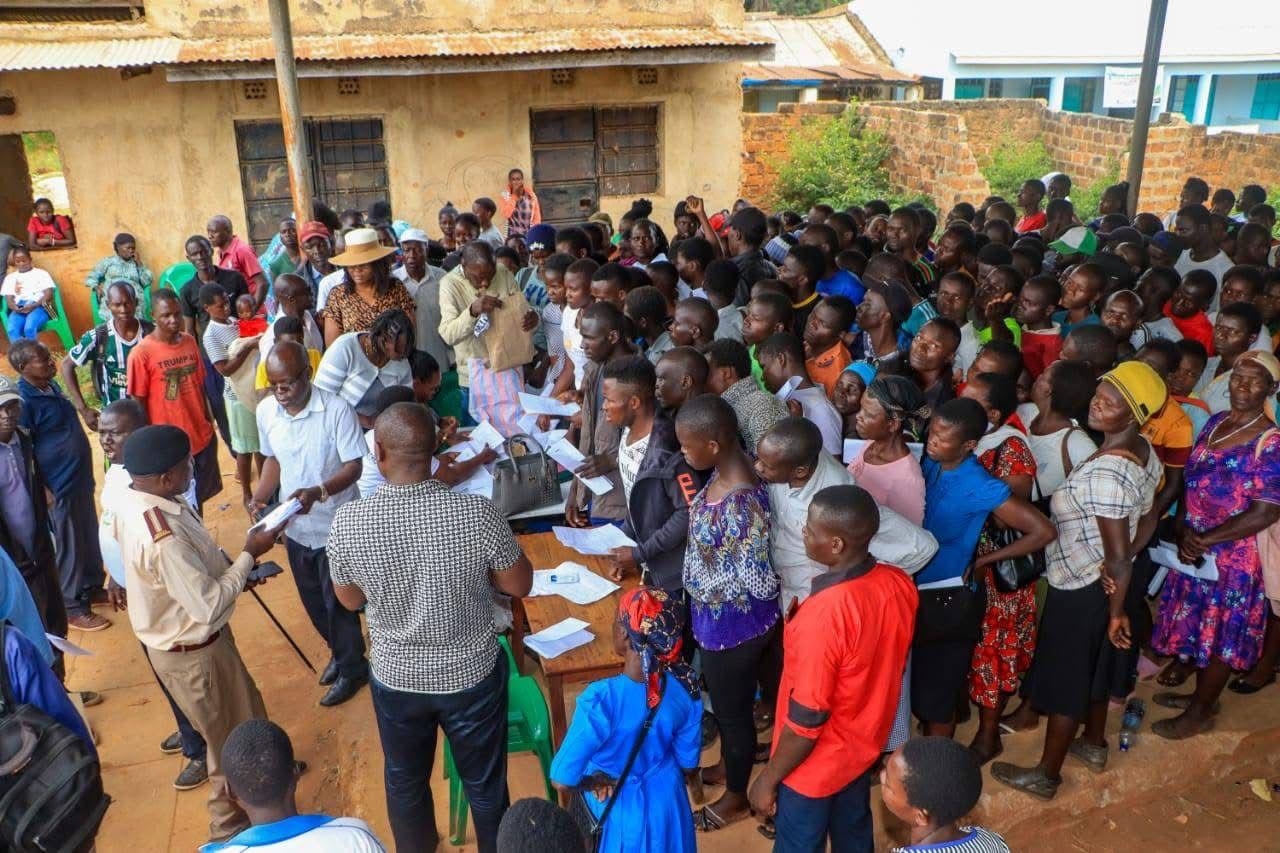
 Senait Regassa, coordinator for IGAD food systems
resilience programme, in Mombasa on Monday / BRIAN OTIENO
Senait Regassa, coordinator for IGAD food systems
resilience programme, in Mombasa on Monday / BRIAN OTIENO Sylivia Hinga, a policy
and food security expert for IGAD’s food systems resilience programme, in Mombasa
on Monday / BRIAN OTIENO
Sylivia Hinga, a policy
and food security expert for IGAD’s food systems resilience programme, in Mombasa
on Monday / BRIAN OTIENOAbout 63 million people in the IGAD region are food
insecure, either already starving or facing starvation.
This comes as efforts to make the region food
secure face budgetary constraints and other challenges that make it difficult
to match the rate at which more people become food insecure.
“People are still at
zero point, a few are at one per cent, two per cent. So, it is very minimal, the
percentage of budgets that go to agriculture, yet we are talking about numbers
of food insecure.
She spoke on Monday
in Mombasa during an agri-food systems investment plan meeting that will serve
IGAD for the next decade.
Land, Hinga said,
has been a critical challenge in ensuring food security because it is a central
resource in food production.
“It is a limited
resource and that’s what makes it a major challenge. There are so many
conflicts over land and we are grappling with population increase.
Seventy per cent of
citizens in IGAD member states depend on agriculture but urbanisation is taking
away land for food production.
She cited the
example of devolution in Kenya, which although it has its benefits on one hand, it
also eats away portions of land that would have otherwise been used for food
production.
“That means the limited
arable land is now reduced. People are now building skyscrapers,” Hinga said.
This, she noted,
needs to be dealt with in terms of policies. For instance, there could be specialised
areas meant for food production only.
Mapping can be done
to know what land is good for agriculture and what is not.
She called on the IGAD member states to increase budgetary allocations to agriculture, saying the about
one per cent allocation in almost all member states is too little.
Senait Regassa, coordinator of the IGAD food systems
resilience programme, said they are working on the next IGAD agricultural
investment plan, which is a follow-up on the Comprehensive Africa Agriculture
Development Programme.
CAADP is Africa's policy framework for
agricultural transformation, wealth creation, food security, nutrition,
economic growth, and prosperity.
In January, African heads of state endorsed
another declaration that will lead to the agricultural transformation programme,
which will be a guide for agricultural investment for the next decade.
Regassa said the changing climate and other
challenges have forced experts from the IGAD region to come together to draft
the next priority areas for investment to transform the agriculture sector and
be able to feed the fast-growing population.
“Igad has done very well in terms of resource
mobilisation and investment. But we need to do more in terms of making this
CAADP agenda very well-known to all stakeholders,” she said.
She said peace, security and food security mutually
affect each other thus any instability anywhere will definitely affect food
security.
This is why, she said, Igad promotes peace
vehemently.
“It is not only about production but also trade
and marketing will all be affected, reducing the amount of food available for
people.
Lack of capacity to track all investments in the
food sector can affect food security, she said, thus the need to invest more on
systems that can monitor food production across the IGAD region.
Conflicts in some parts of the region have made the food security situation worse, Regassa admitted, emphasising the need to build peace to achieve the IGAD food security targets.

















